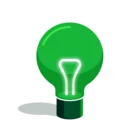Hello
Everyday between the hours of 3am to 6am my electric usage is really high and I can’t seem to work out why?
Both me and my boyfriend are always asleep at this time and the earliest we get up on some days is 7am but our usage for every half hour between those times is between 1.33kwh to 1.54kwh but hardly any electricity is being used whilst we are asleep as we turn everything off before we go to bed the only thing that stays on is the fridge/freezer and our phone chargers our electric water heater comes on at 6am
Please could someone help as our electric is really high for 2 of us in a 1 bed apartment are usage is between £3.80 to £5.90 a day😩



















